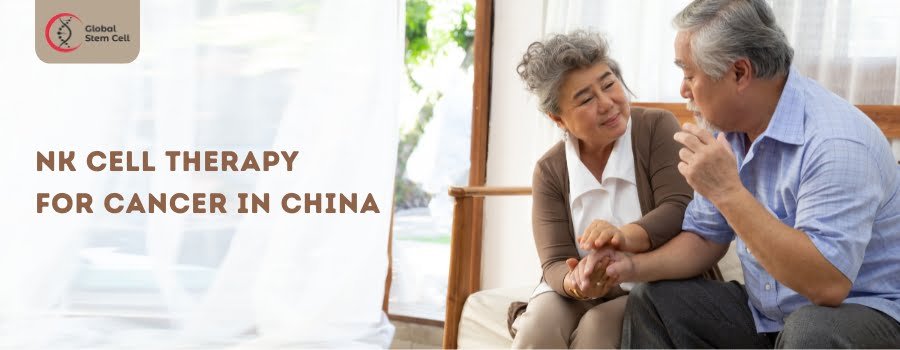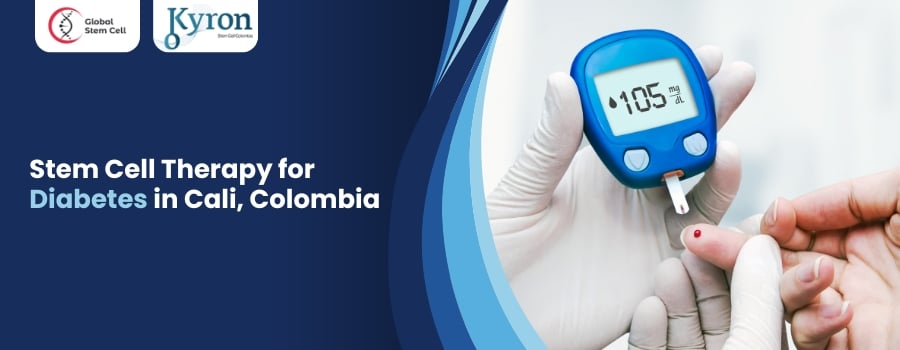
Cancer is a big challenge in China, just like in many other parts of the world. People are always looking for new and better ways to treat it. One of these ways is through something called NK cell therapy. This type of treatment is gaining attention because it uses the body’s own natural defense system to fight cancer.
NK cells, short for natural killer cells, are special cells in our immune system. They are like soldiers that can recognize and destroy harmful cells, including cancer cells. Scientists in China are exploring how to use these NK cells as a powerful tool against cancer.
In this article, we’ll explore the journey of NK cell therapy in China. We’ll learn about what NK cells are, how they work, and why they are important in fighting cancer. We’ll also see how researchers in China are developing and using NK cell therapy to help cancer patients. This could be an exciting step forward in the fight against cancer in China and around the world.
Table of Content
What are NK Cells and How Do They Fight Cancer?
Natural killer (NK) cells are a type of cytotoxic lymphocyte critical to the innate immune system. They play a significant role in the body’s defense against cancer and viral infections. Here’s how NK cells fight cancer:
- Recognition and Targeting: NK cells are capable of recognizing and directly targeting cancerous or infected cells without prior sensitization or activation. They do this by identifying specific surface markers on abnormal cells, such as stress-induced ligands or altered expression of major histocompatibility complex (MHC) molecules.
- Inducing Apoptosis: Once NK cells recognize a target cell as abnormal, they release cytotoxic granules containing perforin and granzymes. Perforin creates pores in the target cell’s membrane, allowing granzymes to enter, which induce apoptosis (programmed cell death) in the abnormal cell.
- Producing Cytokines: NK cells also secrete cytokines such as interferon-gamma (IFN-γ) and tumor necrosis factor-alpha (TNF-α), which can activate other immune cells like macrophages and dendritic cells. This helps to further enhance the immune response against cancer cells.
- Antibody-Dependent Cellular Cytotoxicity (ADCC): NK cells can also recognize cancer cells that have been tagged with antibodies by the adaptive immune system. Through interactions between the Fc portion of antibodies and Fc receptors on NK cells, NK cells can induce apoptosis in these antibody-bound target cells.
- Immunomodulation: NK cells play a role in regulating the balance between pro-inflammatory and anti-inflammatory responses in the tumor microenvironment. They can influence the recruitment and function of other immune cells, thereby impacting the overall anti-tumor immune response.
Cost of NK Cell Therapy for Cancer in China
The cost of NK cell therapy for cancer in China varies depending on several factors, including the type and stage of cancer, the specific treatment protocol, the medical institution or clinic providing the therapy, and whether the therapy is part of a clinical trial or commercially available.
For example, a typical cost for a course of NK cell therapy for cancer in China might be around $18,000. This cost would cover expenses such as the collection of NK cells, their expansion and activation in the laboratory, any necessary genetic modifications (such as CAR-NK cell therapy), and the administration of the cells to the patient.
It’s important to note that the $18,000 cost is just an approximate figure and may vary depending on the specific circumstances of the treatment. Patients considering NK cell therapy for cancer in China should consult with healthcare providers and financial advisors to understand the full cost implications and potential sources of financial assistance or coverage.
Best Hospitals for NK Cell Therapy in China
Several hospitals and medical centers across the country offer NK cell therapy, providing patients with access to cutting-edge treatment options. Two notable hospitals known for their expertise in NK cell therapy in China include:
Beijing Biococus Biotech Limited
- Located in Beijing, Biococus Biotech limited is renowned for its advanced cell therapy treatments, including NK cell therapy for cancer.
- The hospital boasts state-of-the-art facilities and a team of highly skilled medical professionals dedicated to providing personalized care to patients.
- Biococus Biotech limited is committed to research and development in the field of immunotherapy, continuously striving to improve treatment outcomes for cancer patients.
Beijing Puhua International Hospital
- Beijing Puhua International Hospital is a leading medical institution specializing in the treatment of neurological disorders, cancer, and other complex medical conditions.
- The hospital offers a comprehensive range of treatment options, including NK cell therapy, for cancer patients seeking alternative or complementary approaches to traditional treatments.
- With a focus on patient-centered care and interdisciplinary collaboration, Beijing Puhua International Hospital provides a supportive environment for individuals undergoing NK cell therapy and other advanced treatments.
Development of NK Cell Therapy in China
Natural Killer (NK) cell therapy has gained significant attention as a promising immunotherapy approach for cancer treatment. In China, like in many other countries, research and development efforts in NK cell therapy have been ongoing, with notable progress in recent years. Here are some key developments in NK cell therapy in China:
- Clinical Trials: China has been actively conducting clinical trials to evaluate the safety and efficacy of NK cell therapy for various types of cancers. These trials involve both autologous (using the patient’s own cells) and allogeneic (using cells from a donor) NK cells. Clinical research institutions and biopharmaceutical companies collaborate to conduct these trials.
- CAR-NK Cell Therapy: Chimeric antigen receptor (CAR) NK cell therapy, which involves genetically modifying NK cells to express CARs targeting specific tumor antigens, has been a focus of research in China. CAR-NK cell therapy holds promise for treating solid tumors and hematological malignancies.
- Off-the-Shelf NK Cell Products: Efforts have been made to develop “off-the-shelf” NK cell products that can be readily available for cancer patients. These products involve the generation and expansion of NK cells from healthy donors or from induced pluripotent stem cells (iPSCs).
- Combination Therapies: Researchers in China are exploring combination therapies involving NK cells along with other immunotherapies, chemotherapy, or targeted therapies. These combination approaches aim to enhance the anti-tumor immune response and improve treatment outcomes.
- Regulatory Approval and Commercialization: Several Chinese biopharmaceutical companies are actively pursuing regulatory approval for NK cell therapies. As these therapies demonstrate safety and efficacy in clinical trials, there is potential for commercialization and widespread availability in China’s healthcare system.
Successful Cancer Treatment in Beijing China
Advantages of NK Cell Therapy in China
NK (Natural Killer) cell therapy in China offers several advantages, reflecting the country’s advancements in medical research, infrastructure, and healthcare delivery. Some of the key advantages of NK cell therapy in China include:
- Access to Cutting-Edge Treatments: China has rapidly developed its biomedical research and clinical infrastructure, allowing patients to access cutting-edge therapies such as NK cell therapy. Many hospitals and research institutions in China are at the forefront of NK cell therapy development and offer innovative treatment options to patients.
- Affordability: Compared to some Western countries, medical treatments in China, including NK cell therapy, can be more affordable. This affordability makes NK cell therapy a viable option for patients seeking advanced cancer treatment without incurring exorbitant costs.
- Clinical Expertise: Chinese medical professionals have gained significant expertise in NK cell therapy through extensive research and clinical experience. Hospitals and research centers in China often have multidisciplinary teams of healthcare professionals, including oncologists, immunologists, and cell therapy specialists, who collaborate to provide comprehensive care to patients undergoing NK cell therapy.
- Regulatory Environment: China’s regulatory environment for cell therapies is evolving rapidly, with supportive policies facilitating the development and commercialization of innovative treatments like NK cell therapy. This regulatory framework ensures that therapies meet rigorous safety and efficacy standards, providing patients with confidence in the quality of care they receive.
- Clinical Trials and Research: China is actively involved in conducting clinical trials and research studies to evaluate the safety and effectiveness of NK cell therapy for various types of cancer. Patients in China may have opportunities to participate in clinical trials, gaining access to novel therapies and contributing to the advancement of medical science.
- Comprehensive Healthcare Infrastructure: China has invested significantly in building a comprehensive healthcare infrastructure, including state-of-the-art hospitals, research laboratories, and medical facilities. This infrastructure supports the delivery of NK cell therapy and other advanced treatments to patients across the country.
- Integration with Traditional Medicine: Chinese medicine often integrates traditional practices with modern medical treatments. In some cases, patients undergoing NK cell therapy may also benefit from complementary therapies rooted in traditional Chinese medicine, enhancing overall wellness and treatment outcomes.
FAQs NK Cell Therapy in China
NK (Natural Killer) cell therapy is a developing field with ongoing research, particularly in China. Here are some answers to frequently asked questions:
How does NK cell therapy work?
NK cells are a type of immune cell that can recognize and eliminate abnormal cells, including cancer cells, without the need for prior sensitization. In NK cell therapy, these cells are collected from the patient or a donor, expanded and activated in the laboratory, and then infused back into the patient to enhance the immune response against cancer.
What types of cancer can be treated with NK cell therapy?
NK cell therapy has shown promise in the treatment of various types of cancer, including leukemia, lymphoma, breast cancer, lung cancer, and more. Ongoing research is exploring its potential for treating other types of cancer as well.
Is NK cell therapy safe?
NK cell therapy is generally considered safe, with potential side effects similar to those of other immunotherapies, such as flu-like symptoms or mild reactions at the infusion site. However, as with any medical treatment, there are risks involved, and patients should discuss these with their healthcare providers.
How effective is NK cell therapy in treating cancer?
NK cell therapy has demonstrated promising results in clinical trials and research studies, with some patients experiencing significant tumor shrinkage or even complete remission. However, the effectiveness of NK cell therapy can vary depending on factors such as the type and stage of cancer, as well as individual patient characteristics.
Are there any eligibility criteria for NK cell therapy in China?
Eligibility criteria for NK cell therapy may vary depending on the specific treatment protocol and the policies of the healthcare provider or institution. Factors such as the patient’s overall health, cancer type, stage of the disease, and previous treatments may influence eligibility. Patients are encouraged to consult with healthcare professionals to determine if they are suitable candidates for NK cell therapy.
How long does NK cell therapy treatment typically take?
The duration of NK cell therapy treatment can vary depending on factors such as the treatment protocol, the patient’s response to therapy, and the specific goals of treatment. In some cases, patients may receive a single infusion of NK cells, while in others, multiple infusions over a period of weeks or months may be recommended. Healthcare providers can provide more information about the expected treatment timeline for individual patients.
What should I expect during and after NK cell therapy treatment?
During NK cell therapy treatment, patients may undergo a series of medical evaluations, including blood tests and imaging studies, to monitor their response to therapy. Patients may also experience side effects such as flu-like symptoms, fatigue, or mild reactions at the infusion site, which can typically be managed with supportive care.
After treatment, patients will continue to be monitored by their healthcare team to assess treatment response and manage any ongoing symptoms or side effects.
Explore cutting-edge NK cell therapy in China for advanced cancer treatment. Contact us today to learn more and take the next step towards personalized care and improved outcomes.





